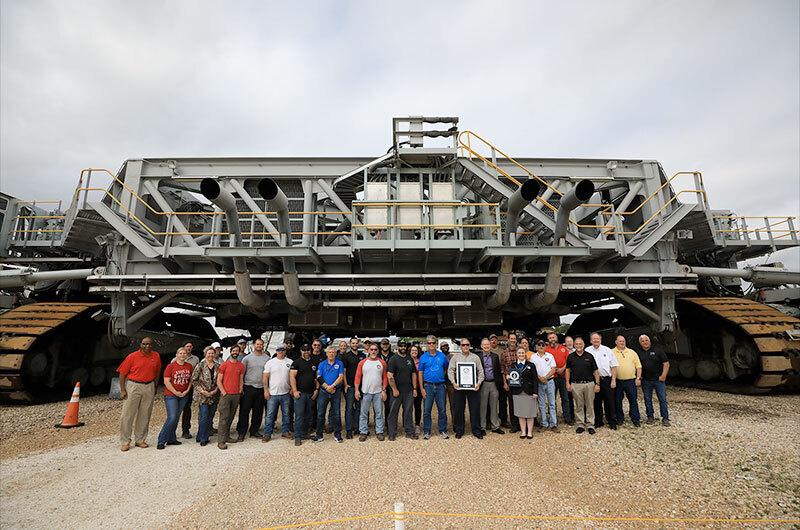31.03.2023

It has taken seven years (or 57, depending on how you count), but now it is official: one of NASA's Apollo-era rocket movers is the heaviest self-powered vehicle in the world.
Guinness World Records on Wednesday (March 29) presented the space agency with a certificate confirming that Crawler-Transporter 2 tipped the scale at 6.65 million pounds (3,106 tonnes), or about the same weight as 1,000 pickup trucks.
That is a record, said Guinness, but noted it was set during the last decade.
"The vehicle's weight was increased as part of a round of upgrades that were completed on 23 March 2016," read Guinness' website. "These upgrades, which included replacing the two massive locomotive engines that provide power to the four sets of caterpillar tracks and strengthening various other systems, brought the vehicle's overall weight up to what it is now."
In fact, both of NASA's crawler-transporters previously shared the record since they were built by the Marion Power Shovel Company in 1966. Originally designed to carry the Apollo Saturn V rockets and their mobile platforms as they moved from the Vehicle Assembly Building (VAB) to either launch pad 39A or 39B at the Kennedy Space Center in Florida, the pair of giant tracked vehicles first weighed in around 5.95 million pounds (2,700 tonnes).
Even at 700,000 pounds (320 tonnes) lighter than Crawler-Transporter 2 weighs today, both movers were in a class of their own. Later-built, land-based vehicles were larger and more massive, but required external power sources to function. The NASA twins (sometimes referred to as "Hans" and "Franz" after a bodybuilder skit made popular by Dana Carvey and Kevin Nealon on Saturday Night Live) generated all their own power.
In 1973, the two crawlers were repurposed to support the smaller and lighter space shuttle. At the end of that 30-year program, Crawler-Transporter 2 was selected to carry the much larger Space Launch System (SLS) rocket and its mobile launcher platform now part of NASA's moon-bound Artemis program.
"NASA's crawlers were incredible pieces of machinery when they were designed and built in the 1960s. And to think of the work they've accomplished for Apollo and shuttle and now Artemis throughout the last six decades makes them even more incredible," said John Giles, NASA's crawler element operations manager, in a statement released by NASA. "To have a Guinness Worlds Records title is icing on the cake for an extraordinary piece of equipment."
The now-record-setting Crawler Transporter 2 was most recently used to deliver NASA's Artemis I launch vehicle to the pad for the mission's November 2022 liftoff. The crawler will next be used to support Artemis II, NASA's first mission to send astronauts to the moon in more than 50 years.
Though other external-powered vehicles hold the record for sheer size, the crawler-transporters are still impressively large with a span about the same size as a baseball infield (131 feet long by 114 feet wide or 40 by 35 meters) and a variable height that maxes out at 26 feet (8 meters). Due to the extremely heavy weights the already heavy crawler carries, the 4.2-mile (6.8 kilometer) drive from the VAB to the pad takes anywhere from eight to 12 hours while traveling at approximately one mile per hour.
"Anyone with an interest in machinery can appreciate the engineering marvel that is the crawler transporter," said Shawn Quinn, NASA's exploration ground systems program manager.
Quelle: CS
